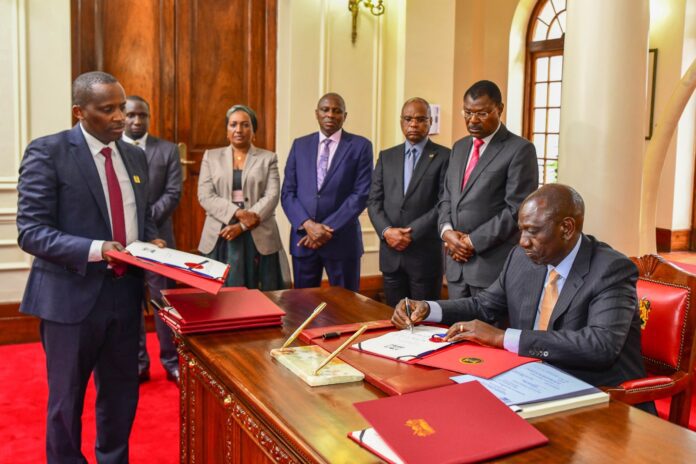Kenya is tightening its grip on illicit financial activities with the proposed Anti-Money Laundering and Combating Terrorism Financing Laws (Amendment) Bill, 2025. This move aims to strengthen oversight and improve the country’s chances of being removed from the global financial “grey list.”
The bill, tabled by National Assembly Majority Leader Kimani Ichung’wah, proposes an expansion of regulatory bodies tasked with monitoring money laundering. Among the institutions set to take on new supervisory roles are the Sacco Societies Regulatory Authority (Sasra), the Institute of Certified Public Accountants of Kenya (ICPAK), the Betting Control and Licensing Board, and the Directorate of Mining.
If adopted, the law would subject savings and credit cooperative societies (Saccos) to stricter scrutiny. Kenyans making deposits to these institutions could soon be required to account for their sources of funds, particularly when deposits surpass a specified threshold.
The bill comes in response to Kenya’s grey-listing by the Financial Action Task Force (FATF) on February 23, 2024, citing loopholes and insufficient commitment to combating money laundering, terrorist financing, and proliferation of illicit weapons. Being on the grey list signals increased monitoring and can deter international investors, prompting the need for urgent reforms.
Another proposed measure targets cash transactions involving precious metals and stones valued above $15,000 (Ksh1.9 million), which would now face heightened scrutiny. The government is also moving to regulate charitable organizations through the Income Tax (Charitable Organisations and Donations Exemption) Rules of 2024. These rules, effective June 18, 2025, will limit charitable institutions from holding over 15% of accumulated funds for more than three years without reinvesting them in their causes.
The amendments signal Kenya’s commitment to aligning with international financial standards and restoring investor confidence by clamping down on dirty money.







